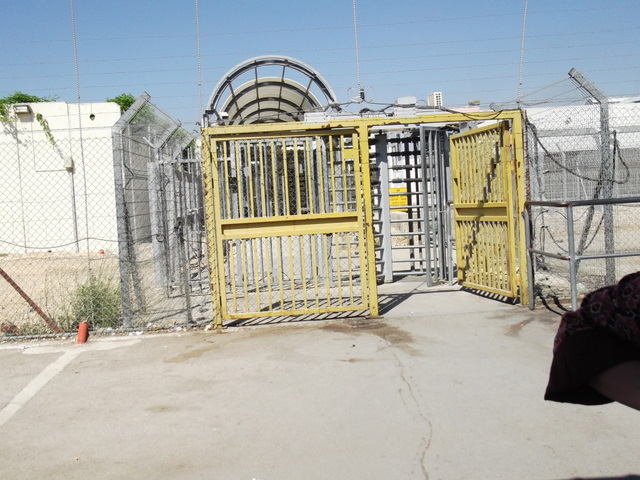Dismayed and angered as the Hilton Festival 2011 puts on Israeli state-sponsored productions
The state of Israel is guilty of oppression, injustice, illegal occupation, and apartheid-style discrimination on a massive scale. It’s actions provoke revulsion, protest and active resistance by decent people all over the world. One component of that protest is a global cultural and academic boycott.
The Hilton Arts Festival is in danger of irrevocably tarnishing its image by undermining that boycott and allowing itself to be used as an instrument of the Israeli state’s agenda. Festival Director, Sue Clarence, has repeatedly drawn attention to three productions at this year’s Festival that are being mounted through support from the Israeli state. On the Festival website for example, she says
“I would also like to draw attention to Roy Horowitz and his actors from Israel with three plays, The Timekeepers, Volunteer Man and My First Sony. Thanks are due to those who made this possible: the Embassy of Israel, the Ambassador – Mr. Dov Segev-Steinberg and the Cultural Attache, Mr. Yaakov Finkelstein; the Israeli Ministry of Foreign Affairs; and Mr Victor Gordon, the head of Tararam [‘South Africa Israel Culture Fund’].”
International Cultural and Academic Boycott
According to the Palestinian Campaign for the Academic and Cultural Boycott of Israel which was launched in Ramallah in 2004, boycotting Israeli academic and cultural institutions is an urgently needed form of pressure against Israel that can bring about its compliance with international law and the requirements for a just peace. In July 2004, the Campaign issued a statement of principles, addressed to the international community urging them to comprehensively and consistently boycott all Israeli academic and cultural institutions until Israel withdraws from all the lands occupied in 1967, including East Jerusalem; removes all its colonies in those lands; agrees to United Nations resolutions relevant to the restitution of Palestinian refugees rights; and dismantles its system of apartheid.
The Palestinian Campaign is inspired by the historic role played by people of conscience in the international community of scholars and intellectuals who have shouldered the moral responsibility to fight injustice, as exemplified in their struggle to abolish apartheid in South Africa through diverse forms of boycott2. The call for a Boycott, Divestment and Sanctions campaign of Israel has wide support in Palestine and has been actively supported by Israelis as well. British writer John Berger, Indian novelist Arundhati Roy, US poet Adrienne Rich, British film director Ken Loach and screenwriter Paul Laverty are just some of the prominent voices that have joined this call. In a movement that continues to gain momentum, a string of artists have recently either cancelled shows or pledged their refusal to be complicit in Israeli Apartheid. Some names include: Carlos Santana, Elvis Costello, Gil Scott-Heron, Dustin Hoffman, Meg Ryan, Faithless and Massive Attack.
The South African Campaign
In October 2010, Nobel Laureate Archbishop Desmond Tutu called on the Cape Town Opera to cancel its scheduled tour of Israel. A nationwide campaign was initiated and on 1 November 2010 the South African cultural boycott of Israel was launched with the ‘South African Artists Against Apartheid Declaration’.
In that Declaration, signatories commented that:
As South African Artists and Cultural Workers who have lived under, survived, and in many cases resisted apartheid, we acknowledge the value of international solidarity in our own struggle. It is in this context that we respond to the call by Palestinians, and their Israeli allies, for such solidarity. As artists of conscience we say no to apartheid – anywhere.
Specifically, the Declaration makes clear that “Collaborating with institutions linked to the state of Israel cannot be regarded as a neutral act in the name of cultural exchange”.
Action
We strongly urge:
*the Festival organisers to re-think this disastrous decision and pull the productions from the Festival programme immediately;
*the Festival sponsors4 and partners to join people of good conscience in protesting the decision and withdrawing their support for the Festival should the decision not be changed
*all cultural workers and artists, directly involved in this year’s Festival and around the country, to speak about their concerns, to support the boycott, and to take creative actions to highlight these issues
*the general public, especially those of us well-off enough to go to the Festival, to add our voices to the protest, to pressure the Festival organisers to reverse the decision; to protest at the Festival; and at minimum to boycott – if not the whole Festival as some of us will undoubtedly be doing, then at least those plays brought to us with Israeli-state money.
We urge our colleagues who have been active on issues of Palestinian solidarity and justice to take the protest action further in the coming weeks.
Signed on 8th September 2011, at the Church Land Programme, Pietermaritzburg:
Prof Steven Friedman, Director of the Centre for the Study of Democracy, Rhodes University and University of Johannesburg.
Ayanda Kota, Unemployed Peoples Movement
Prof Gillian Hart, University of California, Berkely, and UKZN
Rev Mavuso, Rural Network
Richard Pithouse, Politics Department, Rhodes University
Prof Michael Neocosmos, Department of Sociology, UNISA
Anne Harley, Centre for Adult Education, Paulo Freire Project, UKZN
Zodwa Nsibande, Abahlali baseMjondolo
Prof David Szanton, University of California, Berkely (retired)
Prof Richard Ballard, School of Development Studies, UKZN
Church Land Programme (CLP): Board, staff and associates:
Madalitso Ntine (Pietermaritzburg Agency for Christian Awareness, PACSA); Solomuzi Mabuza (Ujamaa Centre, UKZN); David Ntseng; Graham Philpott; Thulani Ndlazi; David Hallowes; Mercio Langa; Mark Butler; Lindo Dhlamini; Nomusa Sokhela; Zonke Sithole.

